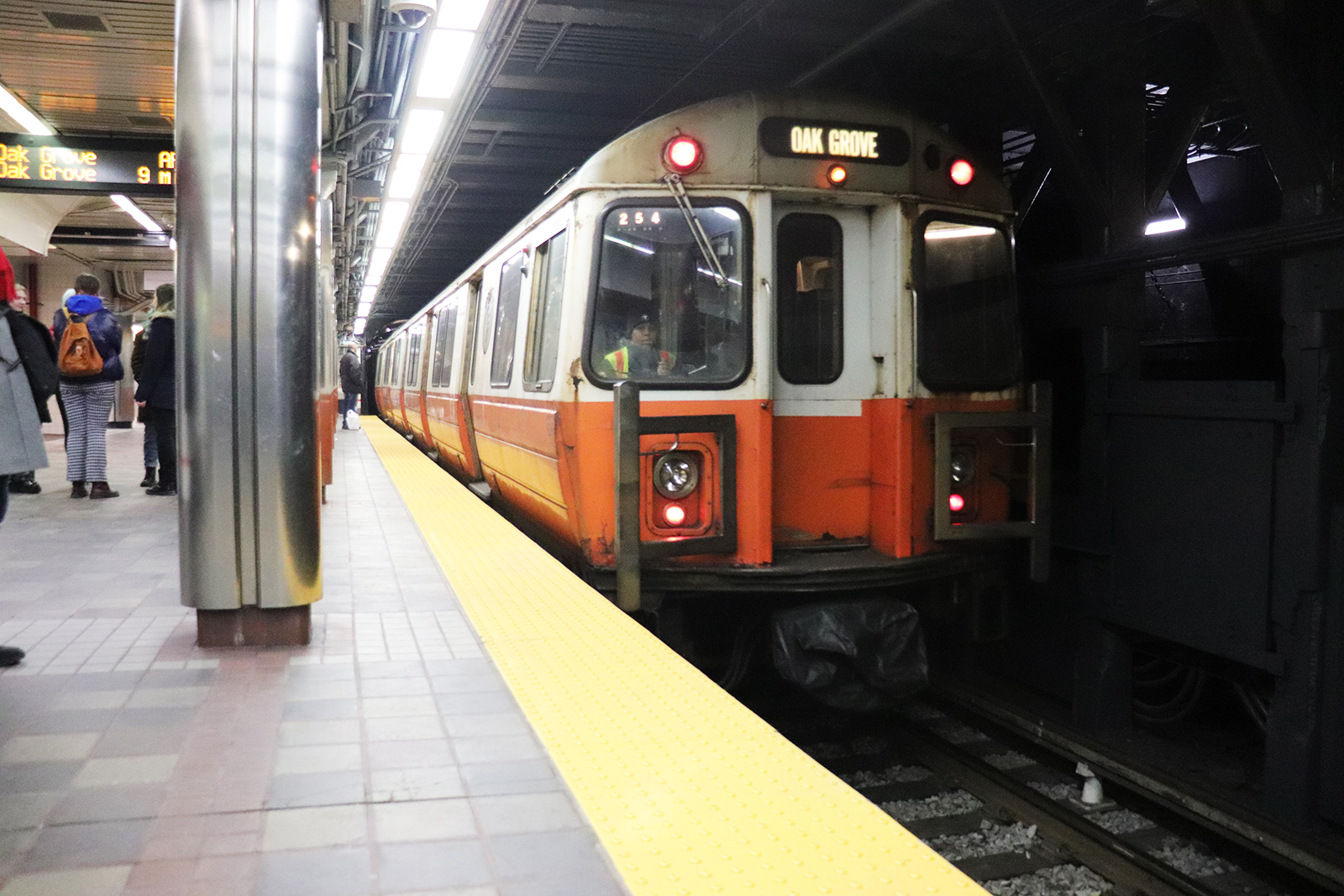
In the first of four Orange Line diversions set for the beginning of the year, the T suspended service between Sullivan Square and Tufts Medical Center starting 8:45 p.m. Friday, lasting through Sunday. The same lapses in service will repeat for three more weekends, apart from the weekend of Jan. 31-Feb. 2, until normal service resumes Feb. 17.
During this time, the city is offering shuttle buses to transport commuters affected by the closures. The buses will travel only between Sullivan Square and Haymarket Station, according to an MBTA press release.
These closures come as a follow-up to work done last year on the Orange Line for a project within the state’s $8 billion Capital Investment Plan, a 5-year program to enhance assets and expand service in the transportation system.
MBTA General Manager Steve Poftak wrote in the press release that the T saw major progress in infrastructure improvements due to efforts from the end of last year.
“Continuing these weekend diversions in 2020,” Poftak wrote, “will allow us to maintain that progress while we look to take a more aggressive approach later on this year.”
Jarred Johnson, chief operating officer of transportation advocacy group Transit Matters, said that while the diversions are inconvenient, they are necessary measures to fix the aging T.
“It’s painful, you know, no one loves the diversions,” Johnson said. “But the alternative is closing it down on nights for a much, much longer period of time. So, it’s definitely the most efficient way to carry out the needed repairs.”
Johnson said he appreciates the MBTA’s efforts to map out the most efficient alternate routes for commuters to take during closures. Shuttle buses, for example, won’t take riders to State, Downtown Crossing or Chinatown as part of the Orange Line diversions this winter because the Green Line can take them in the same direction.
“Instead of trying to have the buses trace the street network there, they’d use the Green Line where the Green Line runs parallel to the Orange Line through downtown,” Johnson said. “So we thought that was a more efficient way of doing things.”
However, Johnson said there also remains plenty of room to further optimize above-ground transportation. Transit Police should cooperate with municipalities to secure signal priority for mass transit, as well as to clear out bus-only lanes.
“There have [also] been plenty of instances earlier this year and this fall where communication has been a failure in terms of where people are supposed to go for the buses, where they’re supposed to be picked up, the bus drivers not always knowing the routes,” Johnson said. “So, they need to constantly be monitoring that.”
During this round of closures, the MBTA will be replacing 840 feet of track at North Station as well as 200 feet at Haymarket Station and 140 feet at State. Additional track will also be laid down at Downtown Crossing, according to the press release.
The metal rails underneath the T wear down over time as they grind repeatedly against steel subway cars. Some of the track replaced last year were more than three decades old, according to the MBTA.
“If you’ve ever been on a train and you’re wondering why you’re going really slowly sometimes,” Johnson said, “that’s because the track is in such bad shape that you can’t go very, very fast. Just like how when the street gets too many potholes you can’t go very, very fast.”
When the renovations are complete, Johnson said, passengers will find themselves experiencing both safer and faster T rides.
Milton Gordon, 21, of Jamaica Plains said he takes the Orange Line to get to work and class on a daily basis, but has begun biking more after noticing the T has been “acting up.”
“I mean, they’ve shut it down, they’ve increased the fares, they’ve done so many things,” Gordon said. “I feel like they can do a little bit more. But I feel like with these renovations coming, I hope they do something different.”
Nikhil Dingra, 23, of Mission Hill said he will have to rely on buses if he chooses to go out on the upcoming weekends, but that he doesn’t mind the temporary change.
“It is important to upgrade the infrastructure for sure,” Dingra said. “It will cause inconvenience. You’ll have to bear with it.”
Arden Heminway, 18, of Roxbury said she thinks the closures will affect students more so than most adults, as those in school tend to head into the city on weekends while working professionals get a break from the daily commute.
“I never rely on one thing, there’s always another way,” Heminway said. “[The current T]’s pretty s—. I think the thing is, you’re going to have to complain either way, like be upset whether it’s not running or whether it’s running [poorly].”






















































































































